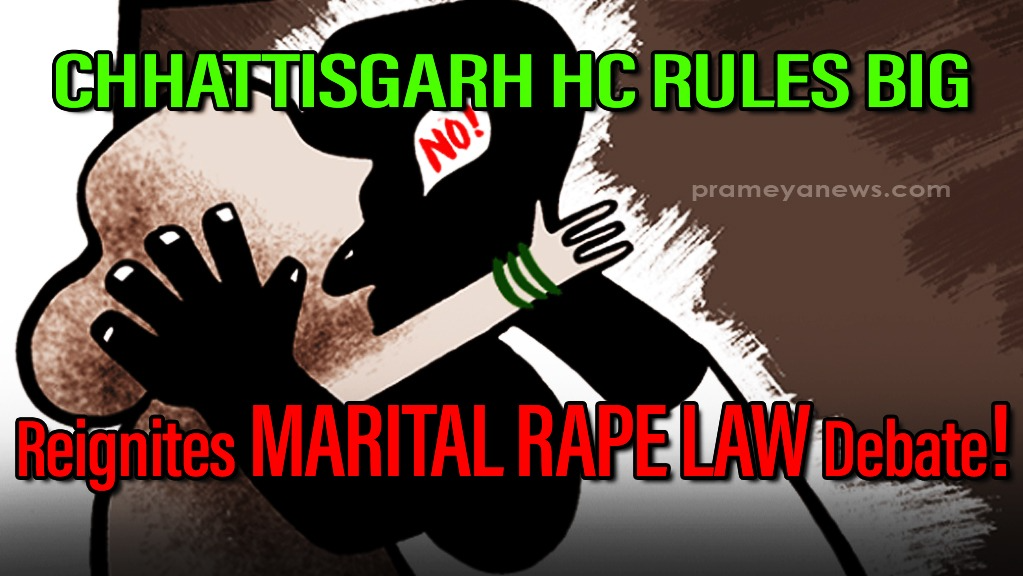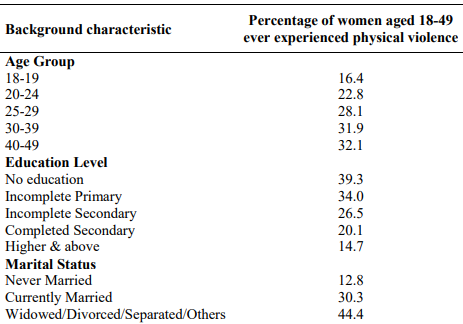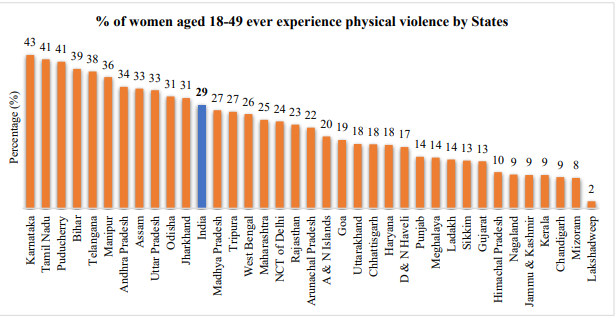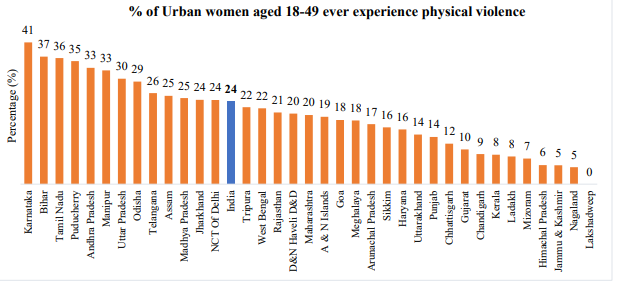

Bhubaneswar: In a significant judgement having wider repercussion, the Chhattisgarh High Court rules that forced (non-consensual) and unnatural sex between husband and wife is not crime.
The big repercussion the Chhattisgarh HC judgement carries is the victim in the said case has been allegedly died due to forced and unnatural sex of the husband with the victim wife.
The State of Chhattisgarh has vehemently argued at the HC against any intervention when the District Sessions court has ruled the appellant guilty under section 304 of IPC.
What is Section 304 IPC?
Whoever causes the death of any person by doing any rash or negligent act not amounting to culpable homicide shall be punished with imprisonment of either description for a term which may extend to two years, or with fine, or with both.
The single judge bench of Justice Narendra Kumar Vyas put into review of the case on the following two grounds:
WHAT CHHATTISGARH HC SAYS?
The court rules that from perusal of Section 375, 376 and 377 IPC, it is quite vivid that in view of amended definition of Section 375 IPC, offence under Section 377 IPC between husband and wife has no place and, as such rape cannot be made out.
SECTION 375: Provisions punishment for having sexual intercourse (penetration or oral) against will, consent, or by coercion or with persons with unsound mind or with underage persons.
But the section has two exceptions:
Exception 1: A medical procedure or intervention shall not constitute rape.
Exception 2: Sexual intercourse or sexual acts by a man with his own wife, the wife not being under fifteen years of age, is not rape.
SECTION 376: Prescribes punishment for WHOEVER commits the offence of rape is subjected to rigorous imprisonment (not less than 10-years but extend to life imprisonment)
SECTION 377 – This section deals with unnatural sex. It states, whoever voluntarily has carnal intercourse against the order of nature with any man, woman or animal, shall be punished with 1 [imprisonment for life], or with imprisonment of either description for a term which may extend to ten years, and shall also be liable to fine.
HC RULING
The HC judgment has the following pertinent points based on law of the country.
THE HC RULED:
“Thus, it is quite clear that at the same time, as per the definition of Section 375 of IPC, the offender is classified as a 'man'. Here in the present case, the appellant is a 'husband' and victim is a 'woman' and here she is a 'wife' and parts of the body which are used for carnal intercourse are also common, therefore, the offence between husband and wife cannot be made out under Section 375 IPC as per the repeal made by way of amendment and in view of repugnancy between both the sections.”
WHY HC QUASHED THE SECTION 304 IPC?
The HC says as far as Section 304 IPC is concerned, the learned trial Court has not
CASE BACKGROUND
STILL HOW THE APPELLANT ESCAPED
MARITAL LAW DEBATE RE-IGNITED
The aforesaid case from Chhattisgarh has once again re-ignited the debate on the need of Marital Rape Law in India.
The demand has been on the following reason of existing physical violence on women in India as documented by NFHS-5 (2019-22). View the images below.

The data clearly has stated that physical violence high among the group of “Married woman” and “Divorced/Separated/Widows etc.”
The images show the Odisha figuring among the top -10 states in the country. The rural-urban graphic given below



WHY INDIA GOVT AGAINST MARITAL RAPE LAW?
In the case of the Harvinder Kaur vs. Harmander Singh, The Delhi High Court held that the Constitution of India could not intervene in household matters as it would destroy the institution of marriage. The court also stated, "in the privacy of the home and married life neither Article 21 nor Article 14 of the Indian Constitution have any role to play."
Moreover, with some sections in the IPC like Section 498A having been grossly misused by many wives against husbands out of vengeance, the Union govt and even the Supreme Court is not interfering.
2019: A PIL was filed by Anuja Kapur asking the Court to direct the Union Government to release some guidelines and laws on marital rape.
The BOTTOMLINE is society has to think over it. An awareness campaign against physical abuse may offer a justifiable solution to such recurring carnal cases.